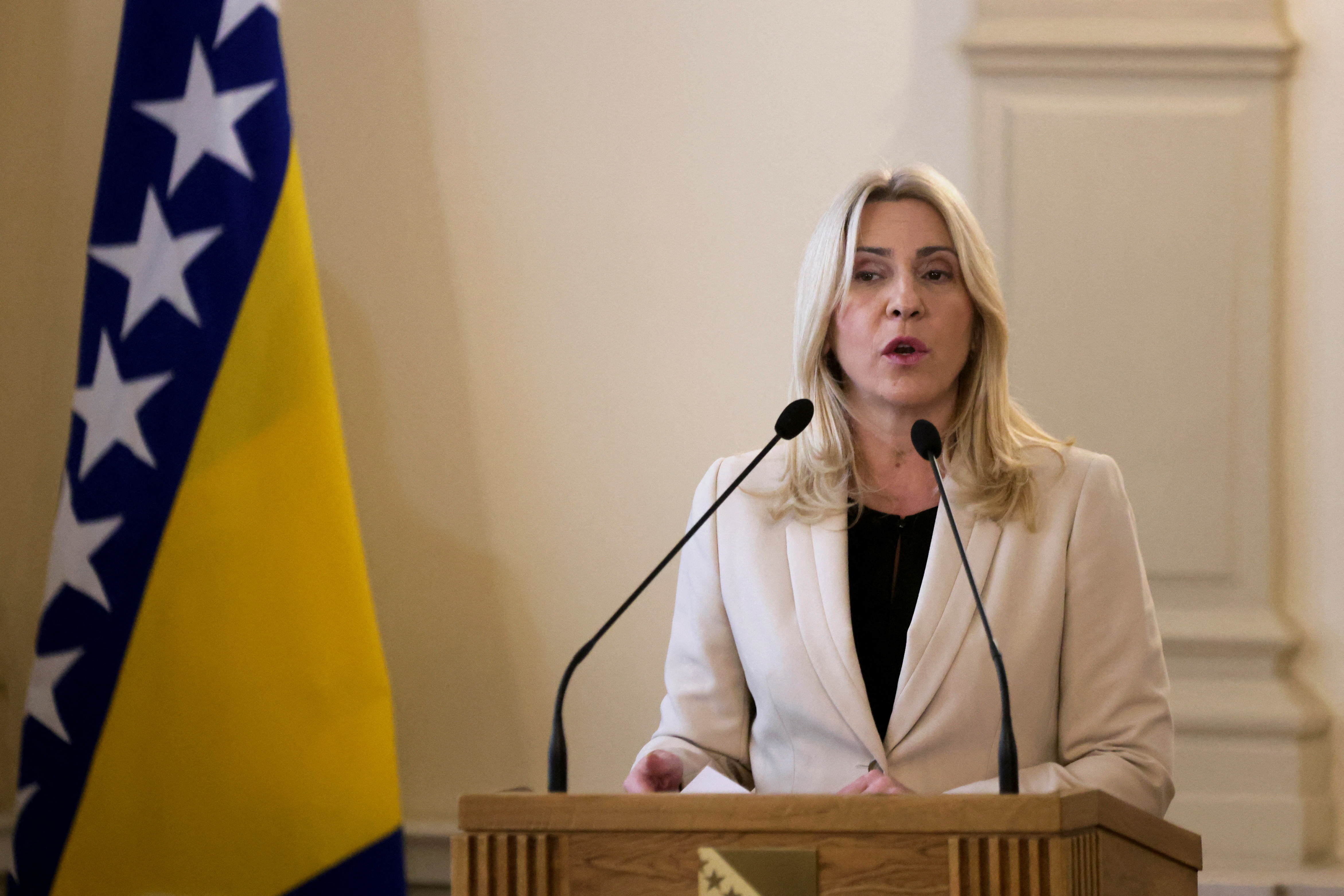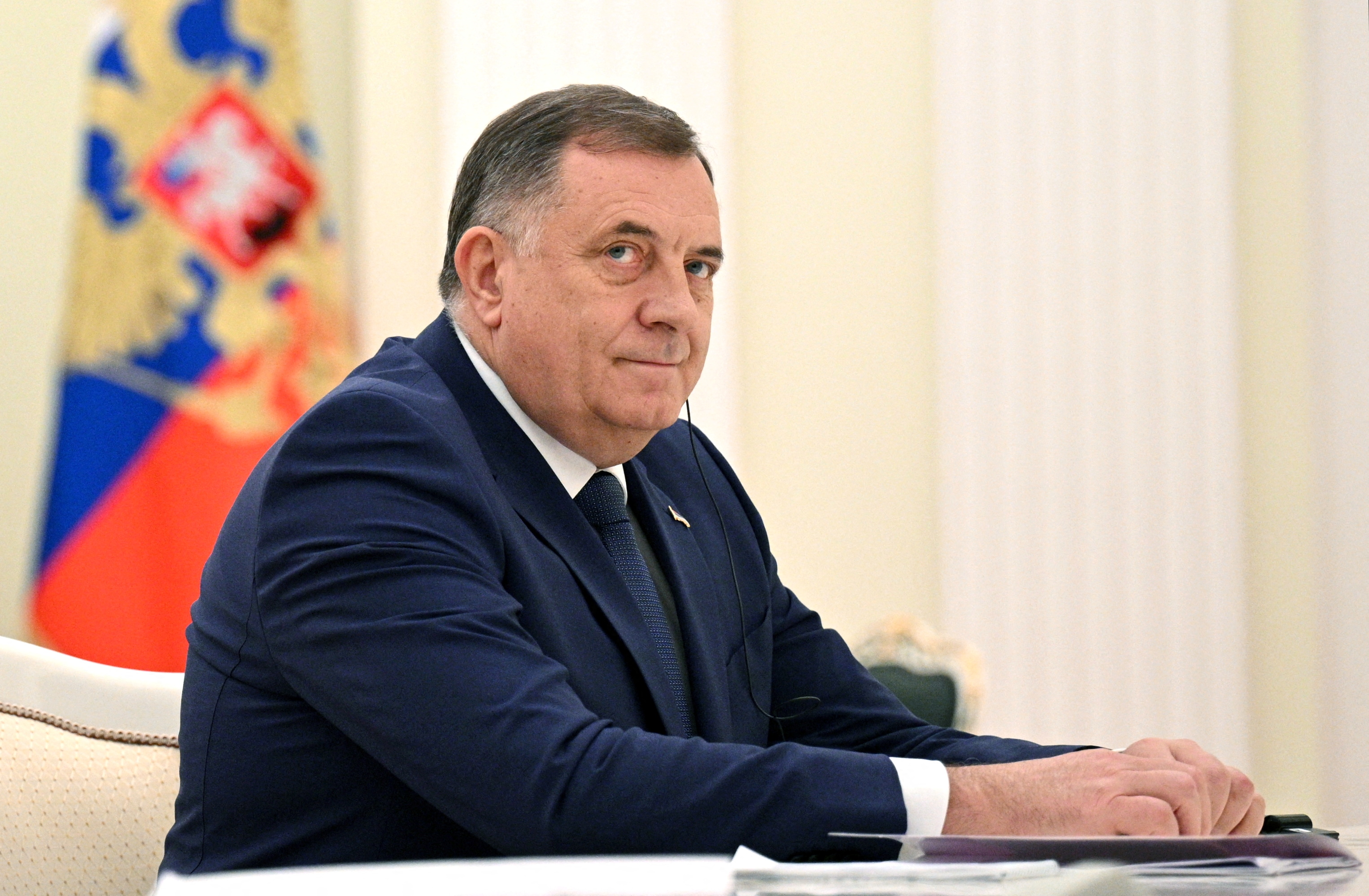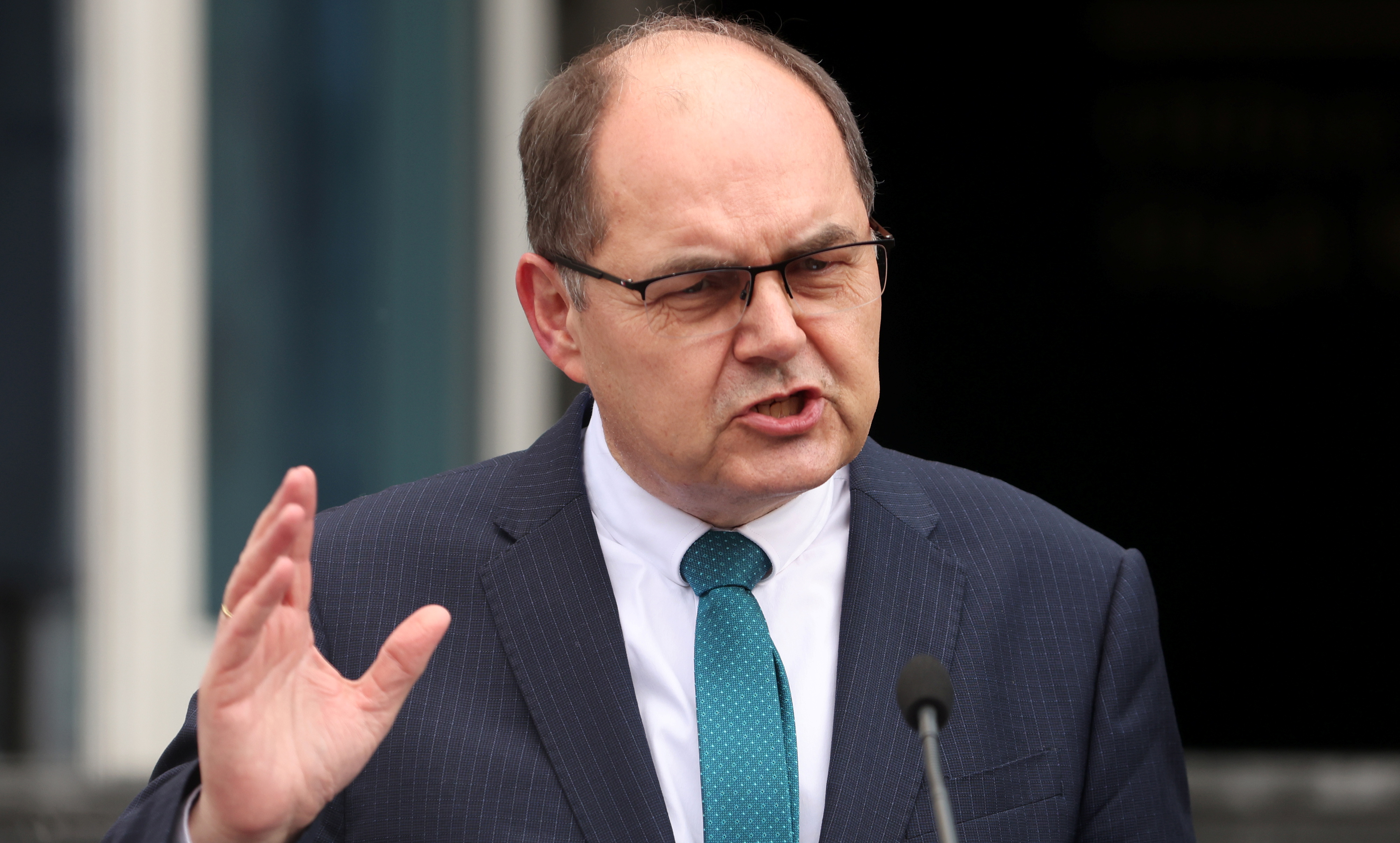
The United States has sanctioned four Bosnian Serb officials for passing a law it calls a “brazen attempt to undermine state institutions”.
The law, signed into effect on July 7, allows the Republika Srpska — part of Bosnia and Herzegovina — to ignore decisions made by the country’s Constitutional Court.
In a press release on Monday, the US Treasury and State Department warned the move could endanger the fragile peace brokered in 1995, after years of brutal war between the region’s ethnic groups.
“This action threatens the stability, sovereignty, and territorial integrity of Bosnia and Herzegovina and the hard-won peace underpinned by the Dayton Peace Agreement,” said Brian E Nelson, the undersecretary of the Treasury for terrorism and financial intelligence.
The Dayton Agreement created two distinct entities within Bosnia and Herzegovina: the Republika Srpska and the Federation of Bosnia and Herzegovina. The former has a Serb majority, while the latter is populated primarily by Bosniaks, followed by Croats.
But while each entity has its own parliamentary-style system, they both exist under a federal government that includes representatives from the country’s major ethnic groups.
That includes a nine-member Constitutional Court, whose role was shaped by the Dayton Accords. With judges selected from across the country’s ethnic groups, the court ultimately delivers the final say on the constitutionality of the country’s laws.
But the US has denounced the Republika Srpska’s new law as a threat to that authority. The law declares the Constitutional Court’s decisions null in the Republika Srpska’s territory.

In Monday’s sanctions, the US singles out four individuals for promoting the “inflammatory legislation”.
They include Nenad Stevandic, president of the Republika Srpska’s National Assembly; Radovan Viskovic, the entity’s prime minister; Milos Bukejlovic, a Republika Srpska minister of justice; and Zeljka Cvijanovic, who serves as part of the presidency of Bosnia and Herzegovina.
Three of them requested a special session of the entity’s National Assembly to vote on the bill in June, the US Treasury explained. The fourth, Bukejlovic, presented the law before the assembly for consideration.
The sanctions against the four leaders follow similar measures taken in January against the Republika Srpska’s President Milorad Dodik, who sponsored the bill.
Dodik and his media outlet Alternativna Televizija were sanctioned for “destabilizing and corrupt activity”, according to the US Treasury.
It accused the Bosnian Serb leader of using his government position to “accumulate personal wealth through graft, bribery, and other forms of corruption”. It also added that his “divisive ethno-nationalistic rhetoric” functioned as a distraction from his “corrupt activities”.
Sanctions generally freeze an individual’s assets in a given country and prohibit transactions with the designated party.

The US is not alone in taking action after the passage of the controversial law. The Council of Europe, an international human rights organisation, condemned the law’s adoption in June, reiterating its support for Bosnia and Herzegovina’s Constitutional Court.
“The decisions of the Constitutional Court of Bosnia and Herzegovina are final and legally binding on its whole territory,” said Secretary General Marija Pejčinović Burić.
“Such attempts to undermine the constitutional and legal order of the country, contrary to the fundamental principles of the rule of law, are not acceptable.”
And Christian Schmidt — who serves as the high representative for Bosnia and Herzegovina, in charge of implementing the 1995 peace agreement — has ruled to annul the law.
But Dodik and his Bosnian Serb allies have already indicated they would not recognise Schmidt’s ruling.







